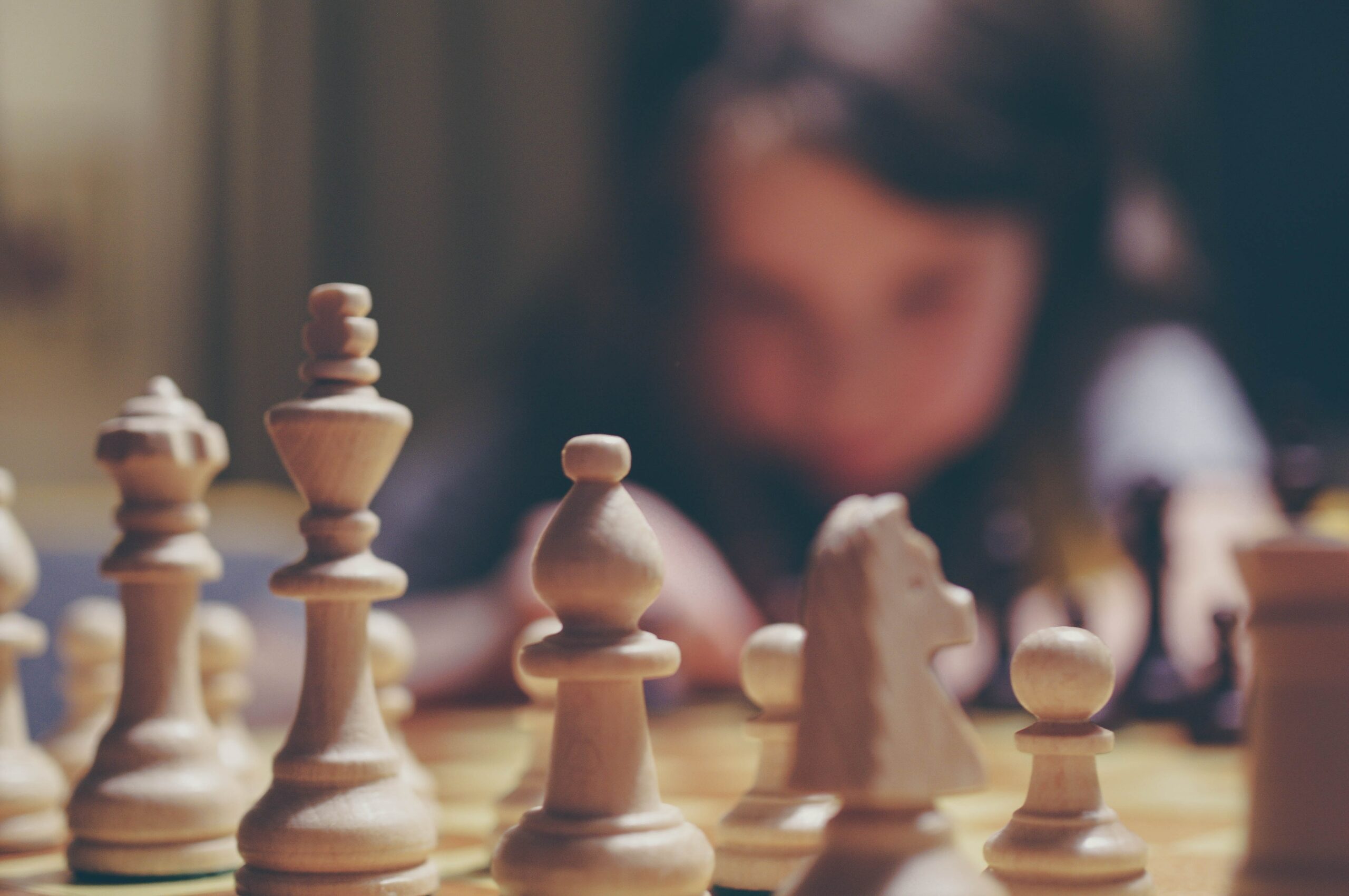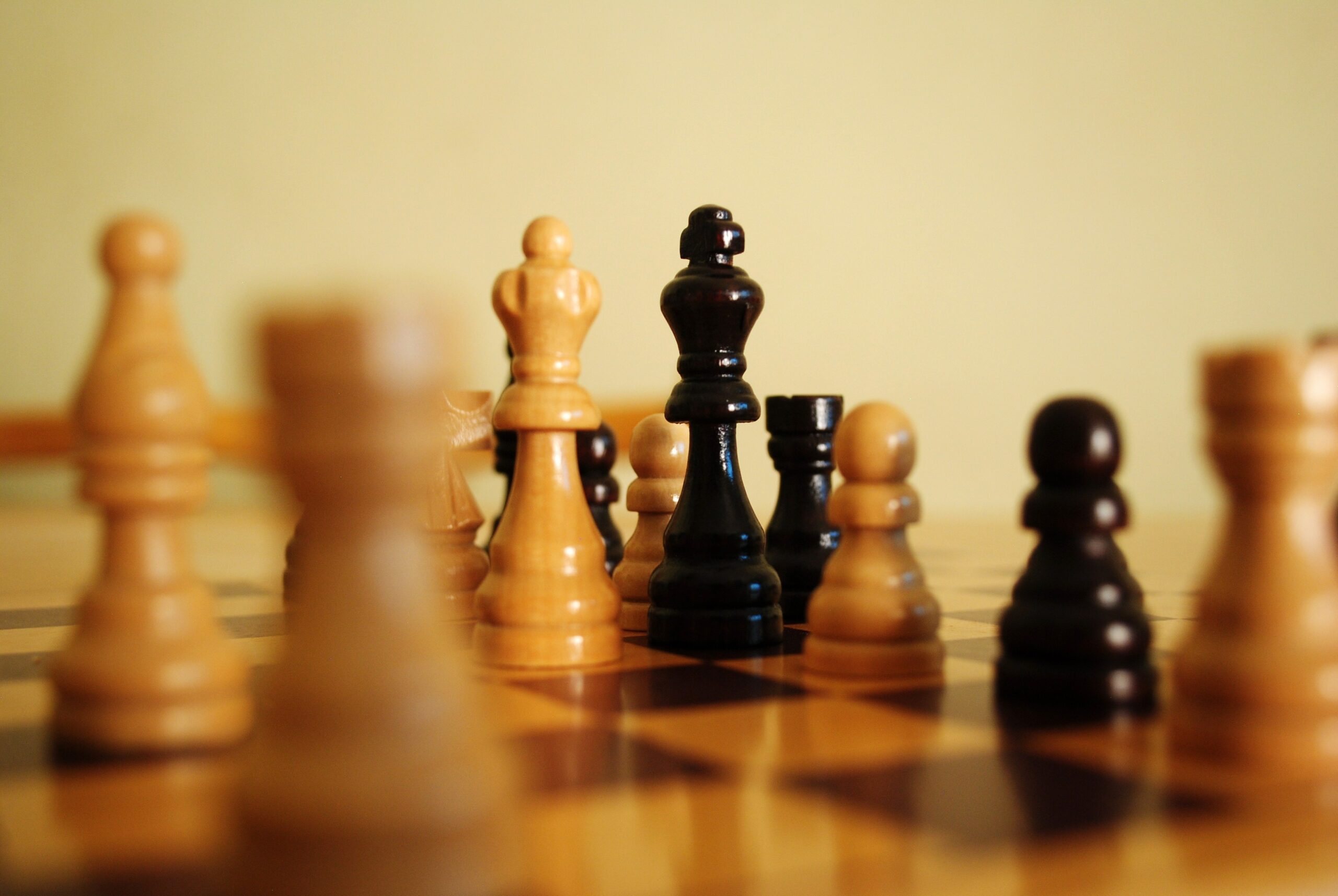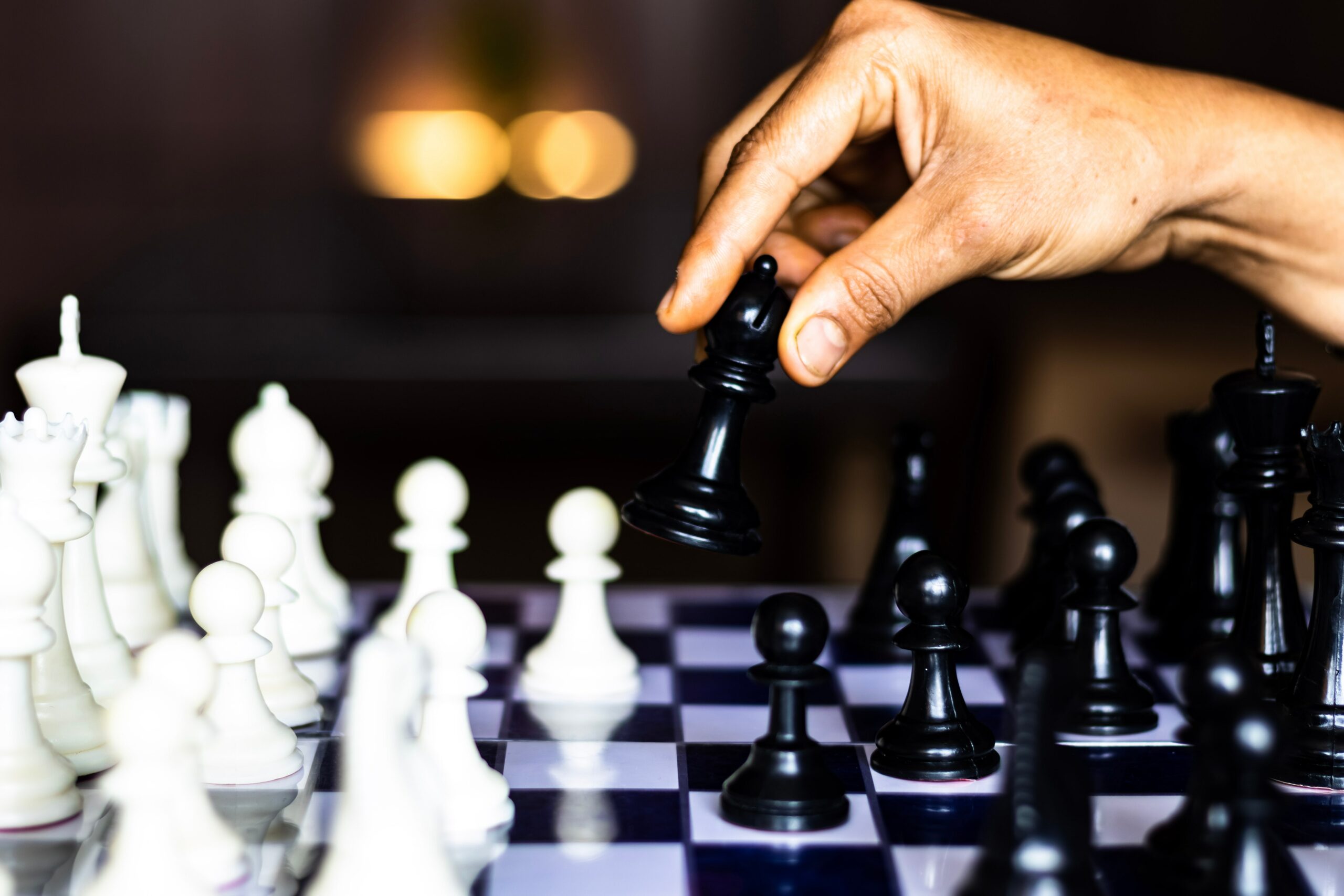Chess is an ancient game that has fascinated and challenged minds for centuries. Its intricate blend of strategy, tactics, and foresight makes it a true test of mental prowess. Whether you’re a beginner looking to learn the basics or an intermediate player aiming to elevate your game, this guide will provide you with valuable insights and practical tips to help you get good at chess.
To excel in chess, it’s essential to understand the fundamental principles that govern the game. From mastering the opening moves to formulating effective strategies, every move on the chessboard should be a calculated step toward victory. But chess is not just about memorizing moves and executing them flawlessly; it’s about honing your analytical skills, developing intuition, and cultivating a deep understanding of the game.
In this guide, we will explore various aspects of chess improvement, ranging from tactical patterns to positional play and endgame mastery. You’ll discover techniques to sharpen your calculation abilities, enhance your decision-making skills, and gain a competitive edge over your opponents. Additionally, we’ll delve into the mindset and psychological aspects of chess, as a strong mental game is crucial to performing at your best.
Whether you aspire to compete in tournaments, challenge your friends and colleagues, or simply derive pleasure from the intellectual stimulation chess offers, the journey to becoming a skilled player starts with a solid foundation. So, let’s embark on this chess odyssey together and unlock the secrets to improving your chess game. Get ready to elevate your strategic thinking, anticipate your opponent’s moves, and experience the thrill of a well-executed checkmate!
What are the fundamental principles of chess strategy?
Chess strategy is built upon a set of fundamental principles that guide players in making sound decisions and formulating winning plans. These principles include the importance of controlling the center of the board, developing pieces harmoniously, and prioritizing piece activity over material gain.
Centralization, king safety, pawn structure evaluation, and timely piece coordination are also vital elements of strategic thinking. By understanding and applying these principles, players can create a solid foundation for their game and gain a significant advantage over their opponents.
How can I improve my chess opening repertoire?
Developing a strong opening repertoire is crucial for success in chess. It involves studying and familiarizing oneself with various opening systems, understanding their key ideas, and learning typical move sequences. It’s essential to select openings that align with your playing style and preferences.
By studying master games, analyzing opening variations, and staying updated on current opening trends, you can expand your repertoire and enhance your understanding of strategic concepts specific to different openings.
Regular practice and playing games with your chosen openings will improve your opening knowledge and enable you to make confident and effective moves in the early stages of the game.

Is studying classic chess games beneficial for my development?
Studying classic chess games is highly beneficial for chess players at all levels. These games provide invaluable insights into the minds of chess legends, showcasing brilliant strategies, tactical combinations, and positional concepts.
By analyzing games played by grandmasters from different eras, you can absorb their thinking processes, improve your pattern recognition, and expand your repertoire of ideas and maneuvers.
Classic games also offer inspiration and serve as a source of creativity, allowing you to explore unconventional approaches and develop a deeper appreciation for the beauty of chess.
How does analyzing my own games help me progress?
Analyzing your own games is a vital component of chess improvement. It allows you to identify your strengths and weaknesses, spot tactical and strategic errors, and gain a better understanding of your thinking process during critical moments.
By examining your moves objectively and comparing them with the insights provided by strong chess engines or experienced players, you can uncover areas for improvement and rectify recurring mistakes.
Furthermore, analyzing your games fosters self-reflection, encourages a growth mindset, and enhances your ability to spot patterns and formulate effective plans for future games.
Are there any effective techniques to enhance my chess visualization skills?
Chess visualization is the ability to mentally envision and analyze positions without physically moving the pieces. It plays a crucial role in calculating variations, planning ahead, and anticipating potential moves and their consequences.
To enhance your chess visualization skills, you can practice solving tactical puzzles, engage in blindfold chess, and play complete games in your mind. Regular exercises that involve visualizing positions and analyzing variations will strengthen your ability to see the board clearly in your mind’s eye, leading to improved calculation and decision-making abilities during actual games.
What are the key aspects of pawn structure and how do they impact the game?
Pawn structure refers to the arrangement of pawns on the chessboard. It has a significant impact on the strategic and tactical elements of the game. Understanding pawn structure helps players evaluate the strengths and weaknesses of their positions, plan pawn breaks, and determine the optimal piece placement.
Factors such as pawn islands, pawn majorities, pawn chains, and pawn weaknesses must be carefully assessed. A solid grasp of pawn structure enables players to exploit positional advantages, create targets for attack, and maneuver their pieces effectively to exploit weaknesses in the opponent’s pawn formation.
How can I develop a strong positional understanding of chess?
Developing a strong positional understanding is essential for making informed decisions and formulating long-term plans in chess. It involves assessing factors such as piece activity, pawn structure, king safety, open files, weak squares, and initiative.
To improve your positional understanding, study annotated games that highlight key positional ideas, and learn about different strategic themes such as piece coordination, outposts, and prophylaxis.
Regularly practicing positional exercises, such as analyzing and evaluating positions without tactical considerations, will further deepen your positional intuition and enhance your overall chess understanding.
What are the most common tactical motifs and how can I spot them?

Tactical motifs are recurring patterns of moves that involve tactical ideas and combinations. Recognizing these motifs is crucial for capitalizing on tactical opportunities and gaining a decisive advantage in a game.
Common tactical motifs include pins, forks, skewers, discovered attacks, and various mating patterns. By studying tactical puzzles, solving tactical exercises, and analyzing annotated games that feature tactical brilliance, you can improve your ability to spot these motifs during your own games.
Developing pattern recognition and tactical awareness will enable you to identify tactical possibilities and calculate variations accurately, ultimately enhancing your overall tactical acumen.
How can I improve my chess calculation and decision-making abilities?
Chess calculation involves evaluating potential moves, predicting consequences, and determining the best course of action. Improving your calculation and decision-making abilities requires regular practice and honing specific skills.
Solving complex puzzles, playing through annotated games to understand the thought process of strong players, and engaging in time-limited exercises to simulate tournament conditions are effective ways to sharpen your calculation skills.
Additionally, cultivating a deep understanding of positional concepts and strategic principles will aid in making well-informed decisions. Balancing accuracy and speed in your calculations while considering both tactical and strategic elements will contribute to better decision-making over time.
Are there any recommended exercises or drills to enhance my chess skills?
There are several recommended exercises and drills that can help enhance your chess skills. Tactical puzzles and exercises, which focus on finding winning combinations or defensive maneuvers, are excellent for sharpening your tactical awareness.
Endgame studies, where you solve positions with a limited number of pieces on the board, are beneficial for improving your endgame technique. Playing and analyzing games against strong opponents, both online and over the board, will challenge you and expose you to different playing styles and strategies.
Finally, regularly reviewing annotated games and studying instructional materials, such as books or online courses, will provide valuable insights and broaden your understanding of chess principles and concepts.
| Recommended Books | Online Resources | |
|---|---|---|
| 1. Fundamental Principles | “My System” by Aron Nimzowitsch | Chess.com’s Strategy Section |
| 2. Opening Repertoire | “The Complete Chess Course” by Fred Reinfeld | Chessable’s Opening Explorer |
| 3. Studying Classic Games | “My Great Predecessors” series by Garry Kasparov | lichess.org’s Game Database |
| 4. Analyzing Your Own Games | “How to Reassess Your Chess” by Jeremy Silman | ChessBase or Scid vs PC |
| 5. Enhancing Visualization | “Imagination in Chess” by Paata Gaprindashvili | Chess.com’s Tactics Trainer |
How can I effectively prepare for chess tournaments or matches?
Effective preparation for chess tournaments or matches involves a combination of physical, mental, and strategic aspects. Physically, ensure you are well-rested, nourished, and in good overall health.
Mental preparation includes visualizing success, managing stress and nerves, and adopting a focused and confident mindset. Strategically, analyze your opponents’ playing style and opening preferences, and prepare appropriate responses. Create a comprehensive opening repertoire, study and analyze recent games from your opponents, and practice specific scenarios that may arise in tournament play.
Regularly playing practice games and participating in tournaments will provide invaluable experience and help you fine-tune your preparation methods.
Is it beneficial to play against stronger opponents?
Playing against stronger opponents is highly beneficial for chess improvement. While it can be challenging and result in losses, it provides a valuable learning experience. Facing stronger players exposes you to higher-level strategies, tactics, and decision-making processes.
It highlights your weaknesses and areas for improvement. By analyzing your games against stronger opponents, seeking feedback, and studying their moves and ideas, you can gain insights and develop a deeper understanding of the game.
Additionally, playing against stronger opponents fosters resilience, adaptability, and the ability to handle pressure, all of which are crucial for personal growth and progress in chess.
What are the psychological aspects of chess and how can I manage them?

Chess has significant psychological aspects that can impact performance. Dealing with time pressure, handling losses, maintaining concentration, and managing emotions are essential skills to develop.
Creating a pre-game routine that includes relaxation techniques, visualization, and positive self-talk can help manage nerves and maintain focus. It’s important to maintain a balanced mindset, not being overly confident or discouraged by outcomes.
Analyzing games objectively and learning from mistakes rather than dwelling on them is crucial. Seeking support from peers or coaches, developing a growth mindset, and maintaining a healthy work-life balance can contribute to improved psychological well-being and overall chess performance.
The Bottom Line
Becoming proficient at chess requires dedication, practice, and a commitment to continuous improvement. By applying the strategies and techniques discussed in this guide, you can embark on a journey to elevate your chess skills and reach new heights in the game.
Remember to grasp the fundamental principles of chess strategy, develop a strong opening repertoire, and analyze classic games to broaden your understanding. Regularly analyzing your own games will enable you to learn from your mistakes and identify areas for improvement. Additionally, focusing on enhancing your visualization skills, understanding pawn structure, and developing a strong positional understanding will provide a solid foundation for your play.
Engaging in recommended exercises, drills, and practice games will help refine your tactical awareness, calculation abilities, and decision-making skills. Furthermore, effective tournament preparation, including physical, mental, and strategic aspects, will boost your performance and confidence on the big stage. Embrace the challenge of playing against stronger opponents as an opportunity for growth and learning.
Finally, don’t overlook the psychological aspects of chess. Managing emotions, maintaining concentration, and fostering a positive and resilient mindset is crucial for consistent progress. Embrace the journey, stay motivated, and seek support when needed.
Chess mastery is a continuous process, and every game offers a chance to learn and improve. Embrace the joy of the game, enjoy the intellectual stimulation it provides, and relish the satisfaction of executing a well-crafted plan or finding a brilliant combination. With determination, perseverance, and a thirst for knowledge, you can become a formidable chess player. So, grab your chessboard, immerse yourself in the intricacies of the game, and let the journey to chess excellence begin.




